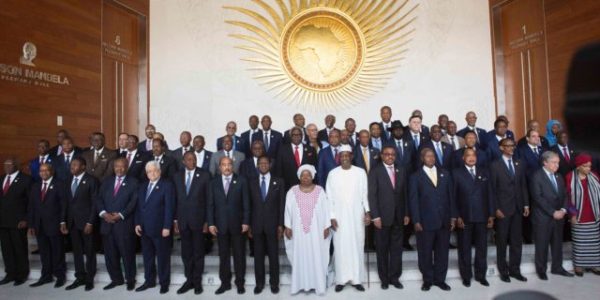As African leaders prepare to meet in Addis Ababa, Ethiopia for the 30th Ordinary Session of the 22 Conference of Heads of State and Government of the African Union (AU) at 29 January 2018, the African Capacity Building Foundation (ACBF), the AU’s specialized capacity-building agency, is taking the necessary steps to provide advice to Heads of State and African Governments on capacity needs in Africa. fight against corruption on the continent. An effective fight against corruption will help Africa to address the massive investment in a skills revolution to facilitate an accelerated and sustainable transformation of Africa through successful implementation of national development plans, the implementation of 2063 Agenda and the Sustainable Development Goals (SDGs).
The theme of this year’s summit,overcoming corruption: a sustainable option for transforming Africa, echoes the four pillars of the 2017 Foundation’s 2021-1 strategy that seeks to effectively achieve the continent’s priority development goals; 2) help countries achieve concrete results; 3) increase the contribution of the private sector and civil society to sustainable development; 4) improve knowledge and learning to increase development effectiveness.
Among the many evidence-based policy and capacity building guidelines, the Foundation put forward its relationship with the AU to the AU and its Member States.Institutional frameworks to tackle corruption in the public sector in Africa, which analyzes the actual results achieved by national institutions created in different African countries to free themselves from corruption. It gives advice to fight against corruption, so that the development plans are not slowed down by the effects of this scourge. The study recognizes the enormous difficulties that anti-corruption institutions have encountered in selected countries in their mission to reverse dangerous corrupt practices and it prescribes innovative ways to reduce these practices.
The report argues that drastic moderation of corruption includes reducing opportunities for public servants to act corruptly, decreasing their discretion, increasing accountability by strengthening monitoring and sanction mechanisms, strengthening economic competitiveness to reduce incentives for corrupt behavior and ending interference by state authorities in determining market prices, which can serve as a tool of extortion vis-à-vis the private sector. The paper also identifies the empowerment of civil society and political reform to make it more competitive as other means of reducing the incidence of corruption in Africa for the transparent functioning of the public and private sectors towards transformation.
In parallel, the Foundation and the African Development Bank will also publish shortly thePerspectives for Financial Governance in Africa (AFGO), a new flagship report aimed at increasing understanding of public financial management and its contribution to good governance, with the ultimate goal of reducing poverty and achieving sustainable development and inclusive economic growth in Africa.
At the Summit of Heads of State, the ACBF will therefore actively contribute to the two major meetings that will end with the session reserved for discussions between Heads of State, scheduled for 28 and 29 January. These are: the 35th Regular Session of the Permanent Representatives Committee (22-23 January 2017) and the 32th Ordinary Session of the Executive Board (25-26 January 2017) in the premises of the African Union Commission (AUC) ).
Prior to the meeting, Professor Emmanuel Nnadozie, Executive Secretary of ACBF stated that “the theme of the Summit, focused on the effective fight against corruption to ensure the transformation of Africa, is very relevant and timely to enable the continent to achieve tangible results in the implementation of the 2063 Agenda and the SDGs. ”
He added that: “For a long time, the fight against corruption discussion to improve service delivery in Africa has focused only on behavior and change of mindset, while evidence on the ground shows significant gaps institutions dedicated to fighting corruption, undermining the performance of their considerable tasks in a holistic manner and to achieve results. ”
Pr Nnadozie said that ACBF bring new perspectives on anti-corruption capacities to accelerate development, proposing mechanisms to coordinate the work of these institutions, following guidelines of economic and political competitiveness, judicial efficiency and transformative leadership among others.
As part of the Summit, the African Capacity Building Foundation (ACBF) is also working with the African Union Commission (AUC) to prepare a robust legal instrument to optimize its status as a country. African Union’s specialized agency for capacity building for delivering programs and delivering highly beneficial services for the continent. This instrument will strengthen coordination between the Foundation, the AUC and other continental institutions to provide AU Member States with the necessary services and advice on development and capacity building. This will avoid duplication by optimizing services for Member States to fill gaps in their plans to accelerate transformation and sustainable development.
-END-
For more information, please contact
Abel Akara Ticha
Senior Communications Officer
The Foundation for Capacity Building in Africa
Harare, Zimbabwe
+ 263-4 304663, 304622, 332002, 332014; Ext. 279
Email:A.Ticha@acbf-pact.org



